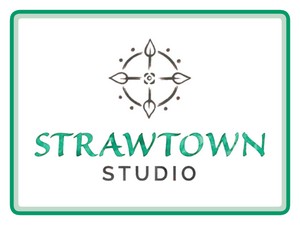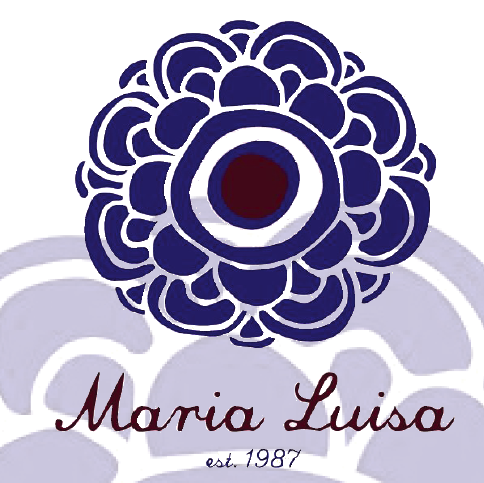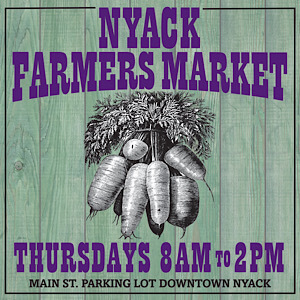by Susan Hellauer
 Earth Matters focuses on conservation, sustainability, recycling and healthy living. This weekly series is brought to you by Maria Luisa Boutique, Dying To Bloom, and Strawtown Studio.
Earth Matters focuses on conservation, sustainability, recycling and healthy living. This weekly series is brought to you by Maria Luisa Boutique, Dying To Bloom, and Strawtown Studio.If Earth Matters to you, sign up for our mailing list and get the next installment delivered right to your inbox.
I must admit, I tiptoed pretty hesitantly into the cheery-yellow Burd-Street storefront. About two dozen people, ranging in age from 20-somethings to 80-somethings, had squeezed into the long, narrow shop. Some had set their plates and teacups onto a glass-covered, um, casket, as they shared and heard stories of good deaths, accomplished and to come.
The atmosphere at Dying to Bloom’s monthly “Death Cafe” was not what its name conjured: No Morticia sipping black tea from a tiny skull cup. Yes, there were tales of courage and somber stories, evoking respectful silence. But there were giggles, too, and even belly laughs, for imaginative dispositions, like the recreational gambler whose ashes were dutifully scattered just past the three-mile limit off the Atlantic City boardwalk.
Proprietor Kerry Potter’s Dying to Bloom (an Earth Matters sponsor) has been open at 48 Burd Street since February 2017. Her “pretty unusual” business idea leads with the heart, and has a very green and sustainable reason to exist. The long-time Rockland resident is committed to the “green burial” movement, as an environmentally sound practice and as a way to protect open land. She and her “Natural Burial Boutique”–and its website–have attracted a growing following. We spoke last week, just before I dropped in on her “Death Cafe.”
Who comes to your “Natural Burial Boutique”?
I have been advertising in various ways since opening here in Nyack in February 2017. Because it’s a unique business, I’ve been fortunate to get some media attention as well. So people come in here either looking for a particular product that they know we have, or they’re just curious. Some are strolling around Nyack and walk in off the street.

Proprietor Kerry Potter (left) presides at last Sunday’s Death Cafe at Dying to Bloom in Nyack. Photo: Susan Hellauer
And then there are those who are not thinking specifically about options for themselves or loved ones, but just want to find out more about the whole idea of natural burial.
What led up to Dying to Bloom?
I’ve been interested as an educator and supporter of natural or “green” burial for several years. About a year and a half ago I started a monthly program on WRCR called “Dying to Bloom.” The show covered not only green burial, but other options as well, and related topics. We also explored and explained consumer rights in the death industry.
I’m not doing the show any more—I’ve moved on to this store—but many of the “Dying to Bloom” shows are available on Youtube. And I may do more shows in the future.
What pushed you to delve into natural burial, and pursue this as a passion and a business?
It began when my parents both died of cancer when they were in their 60s and I was in my 20s. We did what everyone does: They were embalmed and buried in a cement vault in a Catholic cemetery. I didn’t think too much about the death industry before that. But, soon after, I read an article in a local paper about Greensprings Natural Cemetery Preserve, on a hilltop in Newfield, N.Y. [in Tompkins County, near Ithaca] which offers a natural alternative to conventional burials, without embalming fluids, expensive coffins, concrete vaults, and fancy gravestones.

Greensprings Natural Cemetery Preserve in Newfield, N.Y. Photo courtesy naturalburial.org
When I looked further into the “green burial” movement that Greensprings supports (along with sustainable open space preservation), I was intrigued, and got a hold of the Mark Harris book Grave Matters. I was alarmed when I read about surgical embalming (which became popular during the American Civil War) and the carcinogenic chemicals, like formaldehyde, that it uses, to preserve a body for long transport, just to make people look “alive” for an open-casket funeral. I thought about my parents and thought, “Why are we doing this?”
Now I support the natural or “green” burial movement. Some people are taking this a step further, with family-led home funerals, which we also support and encourage. It’s not a new idea—it’s what we always used to do.
Does the natural burial movement get pushback from funeral directors and mortuaries?
The funeral industry is wealthy, powerful, and increasingly corporate-owned. And, yes, they do push back against the green burial movement. I don’t think you’ll hear any funeral director voluntarily telling you that embalming isn’t necessary, although it’s not required in any state.

Kerry Potter in her shop with a willow casket, a natural choice for a green burial. Photo courtesy Dying to Bloom via Facebook
Encouraging people to forgo embalming, and educating people on their consumer rights, is an important responsibility in my shop. Did you know that you can buy your own casket, or have one built, and a funeral home must accept it at no cost to you? And funeral homes’ prices for both products and services can vary tremendously.
New York is one of just 10 states that require the use of a funeral director, to transfer a body and issue a death certificate.
Are there green burial sites in Rockland County, or nearby?
I’ve got a book in my shop that lists green cemeteries all over the U.S. I love Greensprings in Newfield because they are also a land conservation green cemetery. But there are hybrid cemeteries nearby, with a regular section and a “green” or natural burial section, in Sleepy Hollow Cemetery, in Westchester, and in Mahwah, N.J.’s Mary Rest Catholic cemetery. And there’s one in Rosendale, N.Y., near New Paltz, which has a lovely green section and is very affordable.
Several years ago, when I first heard about Greensprings, I began talking to our elected officials here in Rockland about starting a green cemetery fund to help bring one to our area. I got it written into the Rockland County Comprehensive Plan as a means of land conservation, but it hasn’t been put into action yet. It’s time now, with the growth of the green burial movement, to raise awareness about a community green cemetery. It will provide additional income for our parks too, and help to preserve even more open space. Land trusts in the U.S., like Greenhaven Preserve in South Carolina, for example, are starting to use green cemeteries for this purpose.

A green burial grave at Riverview Natural Burial Grounds in Sleepy Hollow Cemetery, New York. Photo: Green Burial Naturally via Facebook
Are there sustainable alternatives to green burial?
Cremations now outnumber burials in the U.S. But traditional cremation uses fossil fuels [natural gas] and releases greenhouse gases as well. There’s “water cremation” (first developed to dispose of animal bodies) that is legal in only 15 states now. Many see it as greener than cremation, but the Catholic Church and casket makers are fighting its further adoption.
There are more environmental disposition methods on the horizon. You can read about them [Learn more, below], and see if they are available in your state, or a neighboring state.
What kinds of products do people shop for in Dying to Bloom?
We have biodegradable products, like a beautiful seagrass willow casket, and a white cardboard casket that can be painted. At the high end, for about $5,000, we have a work-of-art casket covered in poplar bark. We also have several biodegradable earth and water urns, and a product to make cremains safe for scattering in a garden. The Bios Urn—“designed to convert you into a tree after life”—is also popular.

A recycled-paper, biodegradable turtle urn. Water urns will float for a time, and then sink. Photo: Dying to Bloom
I have a product new to the U.S., a 100% handmade wool pet shroud called “sweet goodbye pet burial/cremation kit.” When I last had a dog who was sick and dying, our vet came to our home to perform the euthanization. She offered a plastic body bag, but I wanted our pet to return to the earth, and not be wrapped in plastic. This wool shroud comes in sizes from lizard to large dog.
We also carry books and environmentally friendly memorial objects. And most of our products are available online through our website as well.
What do you say to someone who doesn’t want to dwell on his or her own mortality?
I understand that death is a taboo topic in our society. People are uncomfortable with it. I encourage them to try to work on that. There’s a benefit to being aware that life is temporary, and using that reality to focus and prioritize your life.

The Bios Urn. The world’s first biodegradable urn designed to convert you into a tree after life. Image: Dying to Bloom
In a way, that’s what inspired me to open my store. It was scary huge risk. I didn’t open a coffee shop–everyone wants coffee! I thought, What do I want to do with my time left on this earth? Let me see if I can make a difference and do something I feel passionate about, supporting the green burial movement, and helping it grow.
Thursday, August 9, 7p, film “In the Parlor: The Final Goodbye” is an 80-minute documentary on the home funeral movement. Suitable for ages 14 and up. Free popcorn.
The next Death Cafe will take place Sunday, November 4, 2p-4p.
See the Dying to Bloom Events page for more information
Learn more:
- Dying to Bloom website
- Green Burial Council website
- THE GREEN BURIAL GUIDEBOOK: Everything You Need to Plan an Affordable, Environmentally Friendly Burial, by Elizabeth Fournier (2018, New World Library)
- Greening Death: Reclaiming Burial Practices and Restoring our Tie to the Earth, by Suzanne Kelly (2015, Rowman and Littlefield)
- “Make an Eco-Conscious Final Exit: ‘The Green Reaper’ talks about her latest book (Sierra Club Magazine, 7/22/18)
- “The Fight for the Right to be Cremated by Water” (Grist, 6/14/18)
2016 Earth Day feature by New 12 on the green burial movement, featuring Dying to Bloom’s Kerry Potter
Email Earth Matters![]()
Read Earth Matters every Wednesday on Nyack News And Views, or sign up for the Earth Matters mailing list.
Earth Matters, a weekly feature that focuses on conservation, sustainability, recycling and healthy living, is sponsored by Maria Luisa Boutique, Dying to Bloom, and Strawtown Studio.











